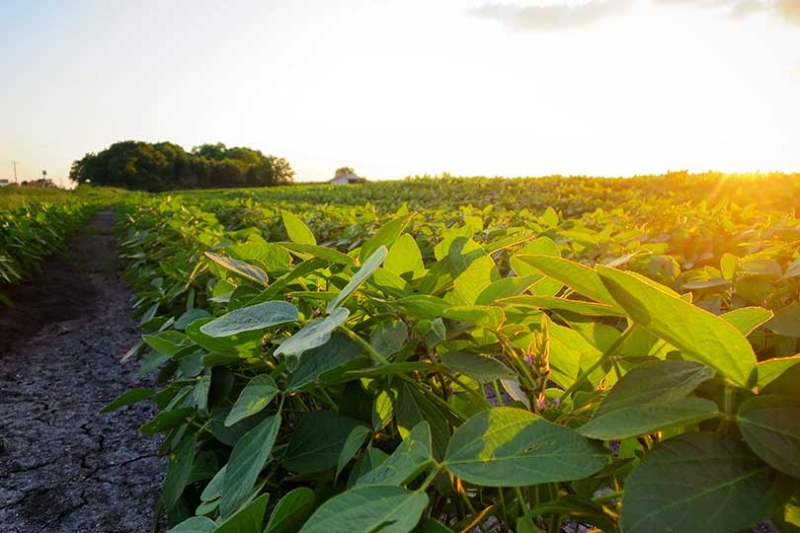By Jessica Domel
Multimedia Reporter
After years of work, the leaders of both the House and Senate Agriculture Committees revealed their separate farm bill frameworks May 1.
Agricultural organizations, like the American Farm Bureau Federation (AFBF) and Texas Farm Bureau, welcomed the development.
“AFBF appreciates the House and Senate Agriculture committee’s progress to enact a new, modernized farm bill this year,” AFBF President Zippy Duvall said. “We’re encouraged to see both proposals acknowledge that programs farmers and ranchers across the country use require additional investment in the face of falling commodity prices and increased inflation.”
The framework released by House Agriculture Committee Chairman Glenn “GT” Thompson (R-PA) calls for an increase in support for the Price Loss Coverage (PLC) and Agriculture Risk Coverage (ARC) programs to account for inflation and rising costs of production.
It also provides authority to expand base acres to include farmers who currently do not participate in ARC or PLC, modernizes marking loans and sugar policy, bolsters dairy programs, and enhances standing disaster programs and expands eligibility for assistance.
“This bill is a product of an extensive and transparent process, which included soliciting feedback from members of both political parties, stakeholder input from across the nation and some tough conversations,” Thompson said. “Each title of this farm bill reflects a commitment to the American farmer and viable pathways to funding those commitments.”
The framework released by Senate Ag Committee Chair Debbie Stabenow (D-MI) brings PLC in line with ARC by establishing a “payment band” on PLC payments.
Notes from Stabenow’s staff say under the bill, all major commodities will see at least a 5% increase in reference prices, with many seeing 10-15% increases.
“This is a serious proposal that reflects bipartisan priorities to keep farmers farming, families fed and rural communities strong,” Stabenow said. “Farmers, families and rural communities cannot wait any longer on the 2024 Farm Bill.”
The Senate Democrat’s framework would lower the threshold for triggering payments for all covered commodities under ARC and provide protection for sugar farmers by adjusting loan rates to account for increases in production costs.
Stabenow said her framework also includes the first-ever specialty crop insurance subtitle that builds on years of progress in expanding risk management options for fruit, vegetable, nut and other specialty crop growers.
“We strengthen crop insurance in a number of different ways important for small farmers, for specialty crops, as well as for large farmers in this area,” Stabenow said. “I want to make sure we’ve got our small and medium-sized farmers being able to have access, as well as our large farmers.”
The framework also calls for improvements to the Tree Assistance Program and the Noninsured Crop Disaster Assistance Program.
Stabenow’s draft makes a series of changes to improve crop insurance for specialty growers, she said, including the creation of a new Specialty Crop Insurance Advisory Committee.
Thompson’s framework calls for an expansion of crop insurance premium assistance for beginning and veteran farmers. It also directs research and development of new policies and establishes an advisory committee for specialty crop farmers.
Notes from the committee say the draft bill would also enhance certain coverage options to reduce the need for unbudgeted ad hoc disaster assistance and bolsters the private sector delivery system.
“It is a strong, bipartisan bill,” Thompson said.
The House Ag Committee is set to markup Thompson’s farm bill draft May 23.
“I hope for unanimous support in this endeavor to bring stability to producers, protect our nation’s food security, and revitalize rural America,” Thompson said.
The Senate Ag Committee has not yet announced a date for markup.
A title-by-title overview of Thompson’s farm bill framework is available here.
Links to section-by-section summary’s of Stabenow’s framework are available here.
“Both proposals recognize the important role farmers and ranchers play in protecting our land, water and air through voluntary, working lands conservation programs,” Duvall said. “Details are important, however, and there is still a lot of work to do. While there will inevitably be disagreements on specific provisions and funding levels of several programs, we encourage both chairs to hold a markup this month so that all members of the agriculture committees can bring their ideas forward.”
AFBF urges lawmakers to work together to find consensus and pass a new farm bill before the one-year extension expires at the end of September.


Leave A Comment